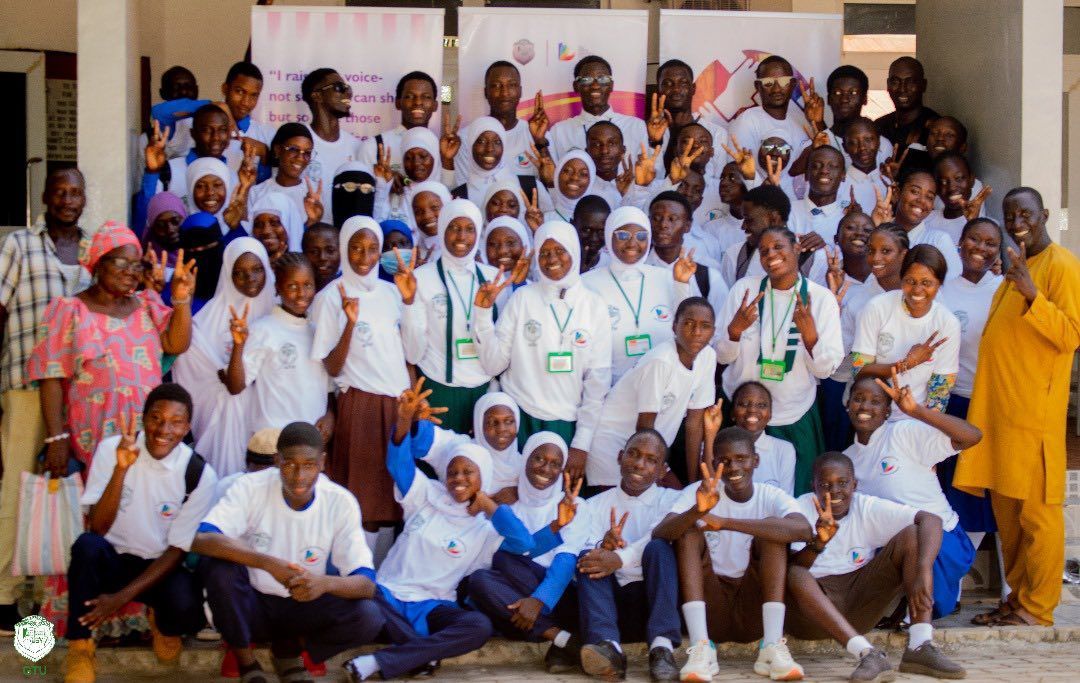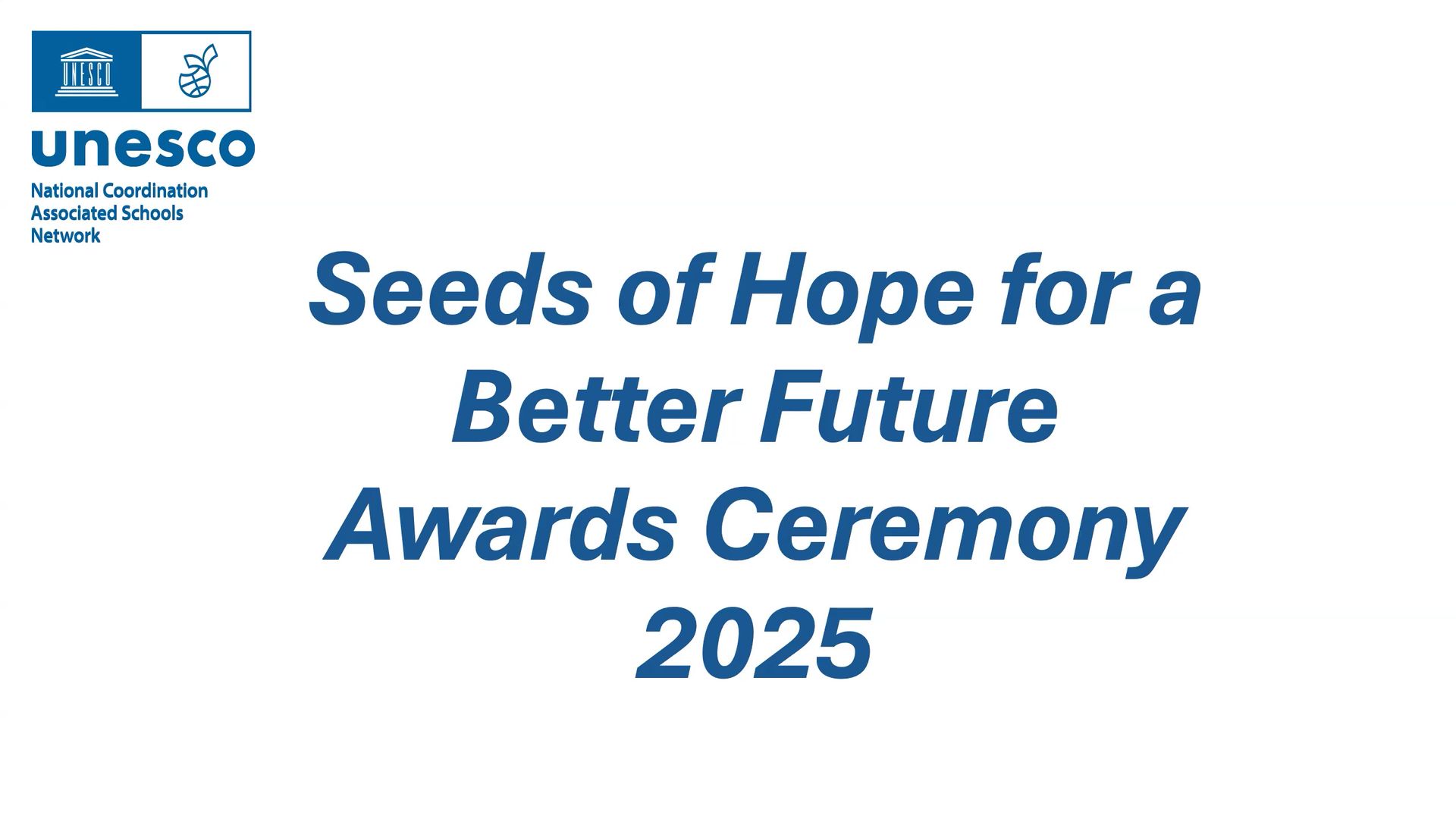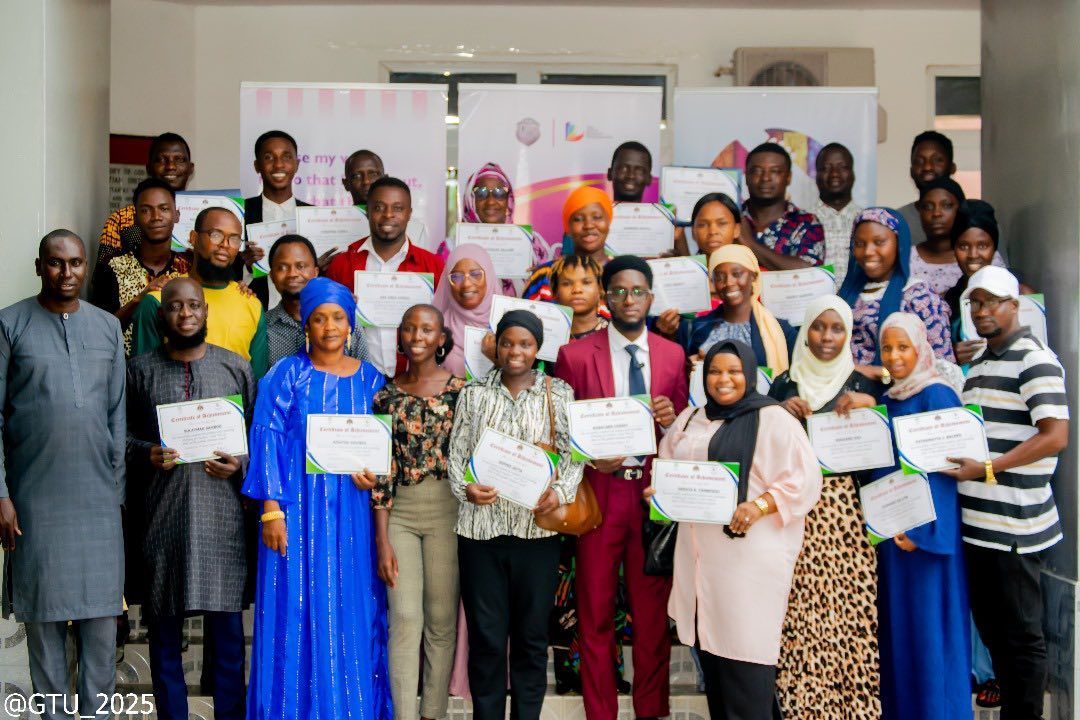How Radio is Supporting Education Worldwide
To celebrate World Radio Day Ann Beatty, our Chief Executive was interviewed on the Learn Radio, Seeds of Creativity show. You can listen to the whole show here:
At the Steve Sinnott Foundation we work with teachers and educators both internationally and in the UK to support access to education for all children. We work at a grass roots level to make a change to education across the globe and we do this by working in partnership with educators on the ground who scope and manage each project locally, so they are fit for purpose, sustainable and replicable.
Our main aim is working with educators to create independence not dependency. Ann is also the UK coordinator for UNESCO ASPnet schools which is a global learning programme which has been running for over 65 years and has 12,000 members in over 182 countries. In the UK we have just over 100 schools.
Coronavirus has had a huge impact on how we are all working and I think one thing the pandemic has illustrated to everyone is how connected we all are. We don't exist in bubbles we are all connected across the world so I think everybody knows we've seen schools close to over 1.6 billion students globally. Although schools have reopened in many countries many children may never return to school, and for those that do their education has been interrupted.
At the Foundation we've had to look at a new way of working and moving some projects online where possible. The key has been keeping everyone safe, the main thing is that we've had to be flexible and open minded to how projects might work in the future.
Talking about global connectivity, we have found that digital connectivity is missing in many places. Even in the UK there is a level of poverty where people can't afford connectivity. But in some of the countries that we work in they don't often have electricity either. Actually, Wi-Fi is sometimes not available and if it is the cost is really out of their reach.
We've worked in the Gambia and in Sierra Leone providing solar powered radios, and that's worked particularly well because even if you're in a very rural village you can get access to radio. It’s been hugely successful with thousands of children learning safely during the last year.
So, what the government and the teacher unions have done is that in the local radio stations they've recorded lessons, and broadcast them. This is backed that up with paper workbooks so these learning resources are delivered to the villages and the schools so that students continue learning. The teachers have been able to use the radio programmes to develop the learning and do extra lessons with the students.
But in some areas the teachers found that students had neither radios or electricity. So Solar Powered radios were the best solution. The Gambia Teachers Union asked the Steve Sinnott Foundation to step in and help get radios out to these students.
The listeners to the show found it amazing to hear how radios are being used in The Gambia to support thousands of children learning in the last year through government and locally recorded lessons that children can access through solar powered radios.
Ann was asked how can UK schools get more involved with the organisation and support the SDG 4 for education. We have resources on our website listed here:
• Storytelling resource pack
• Home learning resource pack
• Education and Human Rights calendar
• Life Long Learning Webinars
• Fundraising ideas pack
You can purchase a solar radio for about £25 and that includes buying them in country and delivering them. Marie Antoinette Corr, General Secretary of Gambia Teachers Union said hello from The Gambia, and said the solar powered radios are having a great impact on teaching and learning especially in the rural areas it is a great resource.
You can also support the positive periods project we have set up, because girls are missing about 50 days every year from school just because they have their period. So we have set up a project where teachers and educators are teaching girls to make their own reusable eco-friendly Pads.
One teacher listening to the show said that they are trying to introduce a screen free Friday every week now where children will do active art or paper based activities rather than watching live lessons on a screen.
Another teacher asked if schools in the UK can link with other schools across the globe via radio programmes like this one.
Ann explained that so far, we have done some global online learning and sometimes the connectivity doesn't work. We did a Storytelling session with schools from Haiti, The Gambia, Sierra Leone and the UK and it worked extremely well, although sometimes the connectivity is a bit poor so we had to turn our camera’s off.
Learn Radio presenter Russell explained “I'm sure we could. I mean we've done live shows for BBC Radio 4 before so we transmit across the Internet, then Radio 4 picks it up off the Internet and then broadcasts it live on their channel. The fact that we've got a listener in The Gambia right now means that our signals are getting there so what we need to do is to play that into a radio station and then broadcast it locally and then hey presto they can sit back have a break and we then take the Airways over. So absolutely it is possible.”
Ann was asked how does the Foundation decides what projects to focus on in each country and which country takes priority. We work where we are asked to work by teachers and educators on the ground. Steve Sinnott was the general secretary of the National Union of Teachers which is now the National Education Union and his passion was international education and so we work mainly but not exclusively with educators through teacher unions.
Each project is put forward to myself and our trustees and we look at each project on its merit and also decide whether or not it's going to be affordable for us because the more projects we get asked to do the more funding that we need. So, we have to prioritise and the most important thing for us is that we are working in partnership, that it is sustainable, and the people on the ground can manage it locally.
Listeners were fascinated to listen about how we can use radio globally.
Within UNESCO we connect with schools globally so we host schools from other countries so for example we've hosted some schools from Russia, South Korea, Japan, Germany. Quite a wide range of schools and also some of our UNESCO ASP net schools do trips to other countries. Although that's not possible now, we still connect and share learning. So, if you go to the UNESCO website, you'll be able to find a whole section on how you can join up and there's lots of resources on there too.
On the UNESCO site there are lots of resources for World Radio Day, and how you can make your own radio show, think about innovation, and invent a radio for the future! There are lots of resources for schools to get involved with.
In fact, many listeners agreed that just listening to the radio give students some time off from screens and devices and lets them relax. Listening is an important skill, and gets them to use their imagination too.
It also diversifies communities because quite often some of the people who are left out in rural areas, for example, they rely very heavily on radio for information. So, I think teachers could think outside the box a little bit with radio and use it to offer diversity and ideas.
One very important thing is to get students practising listening and speaking skills. They could design their own radio shows, it could be just in the classroom or sharing it as a podcast even. It is a really good medium for developing the power of speaking and listening.
During lockdown radio really is enabling people to stay connected whether it's local radio or national radio, or even you know international radio.
Even in this country we've got lots of listeners that are listing on very old mobile phones because it's actually bandwidth light. It doesn’t need much bandwidth so you don't need those kinds of expensive broadband contracts even if wanted to listen to us all day. That's quite powerful for tech poor households. It’s a brilliant method of reaching folks.
Some of us remember windup radios. Ann had one in Sierra Leone some years back found it didn't work very well because she got fed up of winding it up. The changes in solar power technology has been phenomenal in the last few years so now solar radios are really great.
Radio really can reach all four corners of the globe now with solar power and small bandwidth. So, with quality content this becomes the community, our listeners are our community and it is always such a pleasure and a joy to be able to connect with them and that's what makes radio really really special. Sponsoring a solar radio is a great way to encourage children in the UK to support the sustainable development goals.
Many listeners were grateful for hearing about our projects and we had many donations come in during the radio show and after it. We are really grateful to Learn Radio for the opportunity to tell more people about our work, give them an opportunity to get involved and think of more ways they can use radios in their educational settings. Some schools have already started a school radio show and the children love listening to it and interviewing people.
So thank you once again, and let’s keep using radio for education.
The Steve Sinnott Foundation • February 15, 2021

In our continued commitment to ensuring quality and inclusive education for every child, we’ve taken our advocacy to a new level by empowering the next generation to lead the conversation. In partnership with The Gambia Teachers Union, we recently convened the Foundation’s Young Ambassadors for a vibrant day of engagement dedicated to promoting the right to education for all. The event brought together passionate students from selected senior secondary schools across Region One, including St. John’s School for the Deaf, to explore what it truly means to make education inclusive, equitable, and accessible to every learner.

The Steve Sinnott Foundation is proud to celebrate the inspirational winners of the 2025 Seeds of Hope for a Better Future competition, a global initiative supported by UNESCO that brings together creativity, community, and a shared commitment to peace and sustainability. This unique project invited schools across the world from nursery and primary through to secondary and high school to explore the values of peace, cultural understanding, and care for the planet. In the face of climate change, young people were asked to tell their stories through art, performance, and digital creativity, highlighting how small seeds of action can grow into powerful movements for hope. The results have been extraordinary. Schools in France, the UK, Gambia, Haiti, and Kenya have been recognised for their outstanding contributions, with projects ranging from community gardens and sculptures to dance performances and illustrated stories. Each winner has shown how young voices and imagination can nurture peace and sustainability in ways that inspire us all. The full Awards Ceremony can be watched linked here: S eeds of Hope For A Better Future Awards Ceremony 2025 Highlights from the Winners Oak View Primary and Nursery School (UK) created Faces of Feeling, a collection of joyful sculptures already exhibited in a local gallery. Judges praised their work as supporting the wellbeing of others and embodying the idea of children as true “Seeds of Hope.” St Joseph’s Senior Secondary School (Gambia) painted Campaign for a Sustainable Banjul , reflecting real-world climate action in their city. The judges described it as “a most deserving and robust winner.” In France , the Jardin d'Enfants des Nations Unies (United Nations Nursery School) won hearts with Wind of Peace , where 5-6 year olds combined drawings, paintings, and tree planting to champion reforestation. Lyng Hall Secondary School, Coventry (UK) collaborated with Henley Green Primary and the UK Literacy Association to produce The Heart Shaped Hole – an innovative and metaphorical take on Seeds of Hope. Earlsdon Primary School, Coventry (UK) impressed with Primary Plot , a project that included gardening with the visually impaired, reflecting inclusivity and sustainability. A remarkable cross-collaboration between 21 schools across West Yorkshire, Essex, and Tower Hamlets (UK) resulted in Lights, Camera, Score , an ambitious combination of animation, music, and storytelling. CIMA Community School of Hope, Haiti shared Konbit - a video of dance and solidarity, inspiring villages to work together for peace and dignity. Daraja Academy, Kenya presented an ambitious and optimistic project integrating sustainability into everyday school life. Celebrating Creativity and Peace This year’s competition was judged by an impressive panel of artists, writers, and cultural leaders including Sir Antony Gormley, Edmund de Waal, Dame Liz Forgan, Hugh Quarshie, and Rathna Ramanathan. Their collective expertise highlighted the quality and depth of the entries, each of which showed how art can be a powerful tool for global understanding and change. The Seeds of Hope initiative is part of UNESCO UK’s Arts and Culture for Peace programme, first launched in 2022. It has grown from earlier collaborations such as the Coventry Young Ambassadors’ Islands of Peace Japanese Garden , opened in 2021 a living reminder that seeds planted in communities can continue to flourish. Highlights from the ceremony can be found here at this playlist Looking Ahead As Ann Beatty, UNESCO ASPnet UK National Coordinator , shared: “The quality of entries was extraordinary. We are delighted at the response to this amazing initiative in collaboration with our international partners.” And in the words of judge Jannette Cheong : “Young people around the world understand well the value of peace and tolerant relationships between cultures. Their creativity is an inspiration to all of us.” At The Steve Sinnott Foundation, we believe that education is the seed from which hope grows. The Seeds of Hope competition is a shining example of how young people through creativity, compassion, and collaboration are already shaping a more peaceful and sustainable future. You can access the full online awards presentation here: Seeds of Hope For A Better Future Awards Ceremony 2025

The journey to strengthen the well-being and success of learners in The Gambia continues with a renewed commitment to guidance and counselling in schools. By August 14th 2025, we have successfully trained 140 educators across 𝐑𝐞𝐠𝐢𝐨𝐧𝐬 𝟏, 𝟐, 𝟑 & 𝟒 under our Guidance & Counselling Programme. A programme designed to equip educators with the skills to support students’ academic, social, and emotional development. Region 3 Teachers Complete Level 2 Training On Wednesday, 6th August, thirty teachers from Region 3 (North Bank Region) began a three-day Level 2 Guidance and Counselling training at the Christian Council in Kanifing. This programme built on their earlier Level 1 training in Farafenni, with a focus on deepening their capacity to serve as school-based counsellors. The training concluded with a certificate presentation ceremony, recognising the teachers’ commitment and marking an important step in their professional development. These certificates symbolize more than an achievement; they represent each teacher’s readiness to provide psychosocial support, guidance, and mentorship to learners across their schools.

